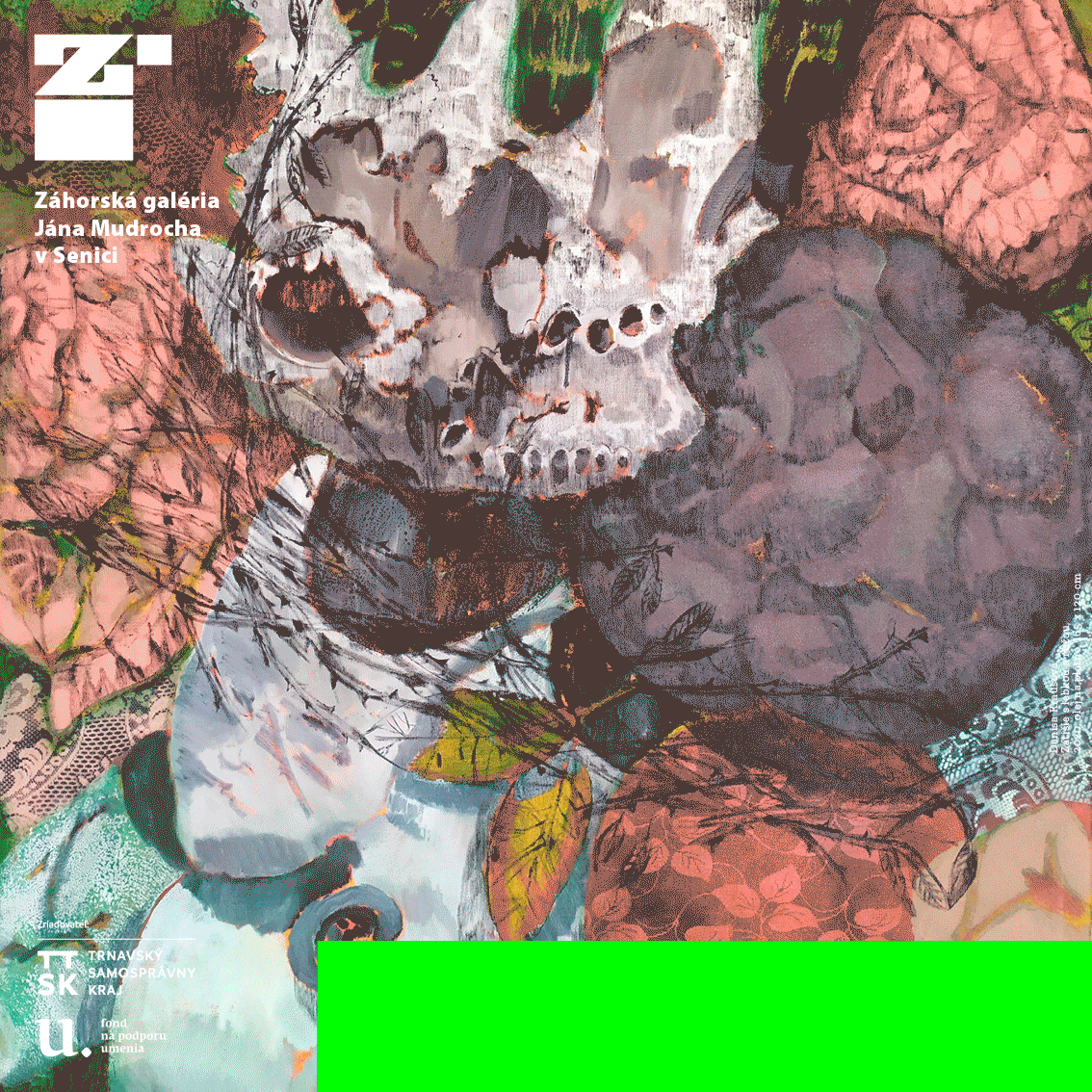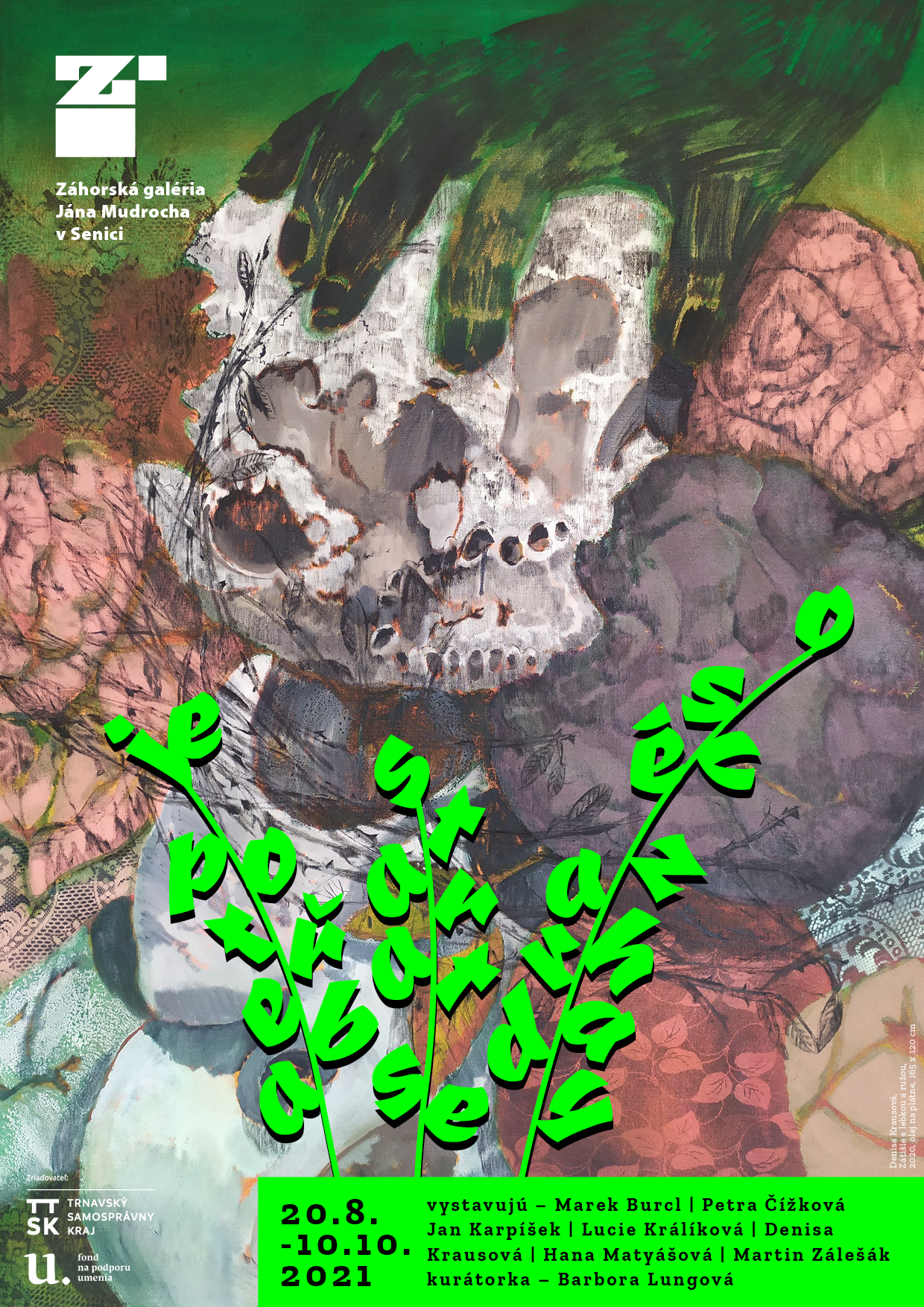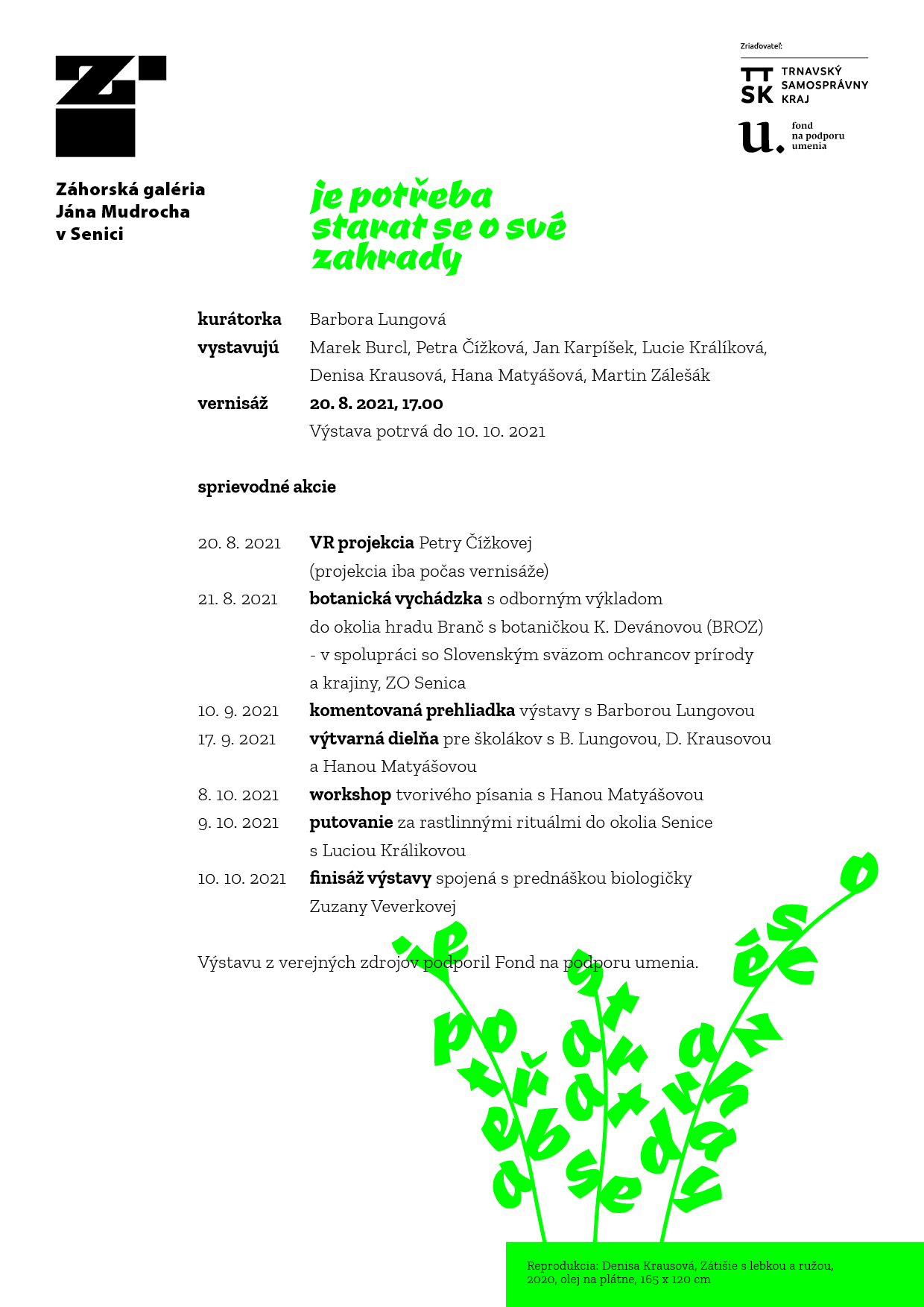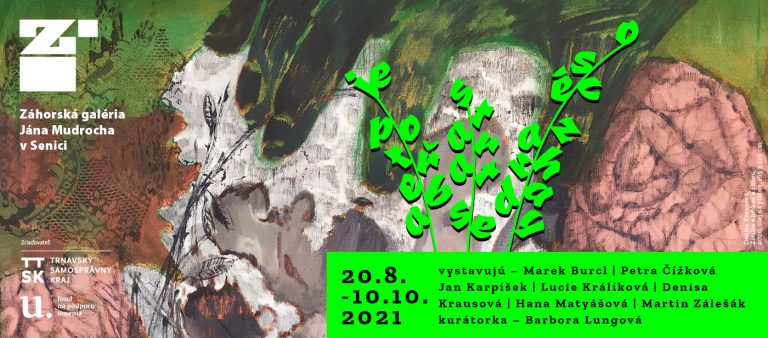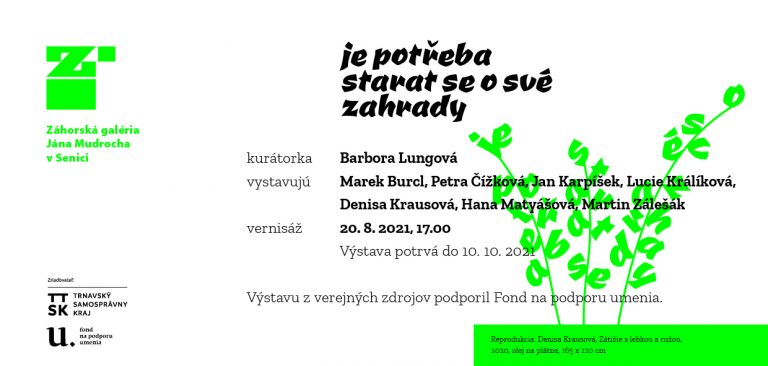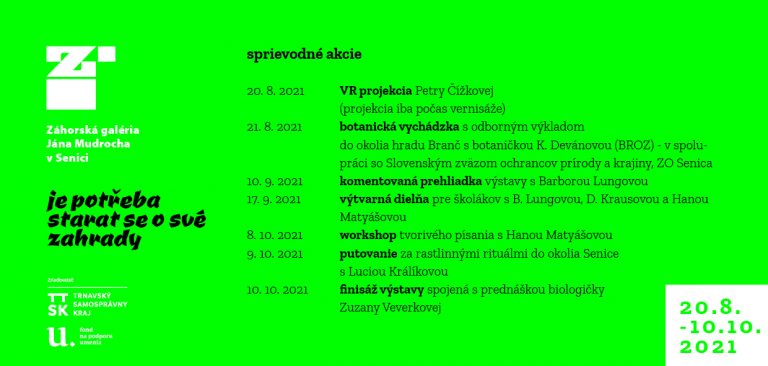Home › Exhibitions › Archive of exhibitions › 2021 › We Must Cultivate Our Gardens
We Must Cultivate Our Gardens
We Must Cultivate Our Gardens
Exhibition title: We Must Cultivate Our Gardens
Venue:Zahorie Gallery of Jan Mudroch in Senica
Curator: Barbora Lungová
Exhibiting artists: Marek Burcl, Petra Čížková, Jan Karpíšek, Denisa Krausová, Hana Matyášová, Martin Zálešák
Opening: 20.8.2021 (Fri) at 17.00
Duration: 2021/08/20 (Fri) – 2021/10/10 (Sun)
Follow-up program: Botanical field trip – Katarína Devanová (Bratislava Regional Conservation Society – https://broz.sk/en/organisation/); lecture on landscape formation based on human agricultural activity from historical perspective and diverse forms of conservation landscape management – Zuzana Veverková (Czech Union for Nature Conservation, Kyjov section); sensuous wandering through landscape accompanied with plant rituals – Efemér (Lucie Králíková); guided tours of the exhibition and a lecture on gardens as landscapes and landscapes as gardens – Barbora Lungová; local guidance – Slovak Union for Nature and Landscape Conservation – Lubica Kryštofová
About exhibition
The exhibition title is inspired by the last sentences of Voltaire’s Candid where the novel’s protagonists find stoical calm and relative happiness after several decades of being tossed around the world by circumstances of politics, war, folly, and cruelty. They settle down and enjoy the welcoming shade and the products of their garden which provides them both with basic subsistence and with luxury fruits – that is, with aesthetic and culinary pleasures. Usually, it is architecture which is associated with visual art; the figure of a house is often invoked in philosophical texts as well. Garden, a type of space which is a threshold between “wilderness” and the architectural order seems to escape the kind of attention it would deserve. Contemporary environmental art frequently focuses its attention to general and global entities, be it the terrifying prospect of sixth mass extinction, degradation and collapse of ecosystems caused by pollution, extraction, urbanization, or intensive agriculture. Looking at gardens may seem in this context as a form of superfluous aesthetic escapism. Yet, it could be gardening which might help restore the links we had severed: those of producing our own vegetables, fruit, and flowers, those of creating our own dream paradises (the popularity of “cottagecore” during the lockdown is quite logical), those of a shared togetherness in our communities (their possible claustrophobic effects notwithstanding), those of caring for the biodiversity whose existence is so critically endangered. Since biblical times, maybe longer, a garden is an image of paradise and of the ideal, carefree existence. After all, the experience of expulsion from the garden has been not familiar only in the last several hundred years of capitalist economics, colonialism, and the advent of modernity.
The project we are presenting to the public is not a purely artistic one; its goals are educational as well. Ecosystems created by people can be also understood as gardens – in fact, most landscapes have been formed by human activity in the last tens of thousands years, be it the bush formed by Aborigines or lodgepole pine forests of the Pacific coast of the United States. In our context, the same can be said of Central European landscape, which is (or was) characteristic for its meadows, pastures, tree avenues, orchards, coppiced forests, small quarries, wetlands, and a number or other “constructed ecosystems” which essentially depend on extensive, small-scale but ongoing human activity. Locally, these ecosystems have vanished in great numbers due to a lack of human care.
The artistic part of the project will present several artists who are preoccupied with gardening and working with plants, animals, and fungi both in art and life. The follow-up program, however, also plays a vital part of the project in aiming at connecting communities of people who are interested either in art or in nature conservation and environmental issues. We will take the participants outdoors to observe wild plants with a professional botanist, to experience landscape and plants artistically through ad-hoc rituals invented by one of the artists, we will provide two lectures on landscape conservation management and philosophical perspectives on nature/culture, wilderness, and figures of gardens and gardening artists, and will organize painting/environmental workshops for schoolchildren. These activities aim to demonstrate the interconnectedness of aesthetic and ethic approach to landscape, to living entities that surround us, and to “nature,” or rather, to “nature-culture” as an amalgam of things and phenomena which are wild and sympoetic and things and phenomena which are constructed and essentially determined by human activities. We will look at things which are brittle and precarious either due to a lack or an excess of different forms of human activities.
Barbora Lungová
Supported using public funding by Slovak Arts Council.


